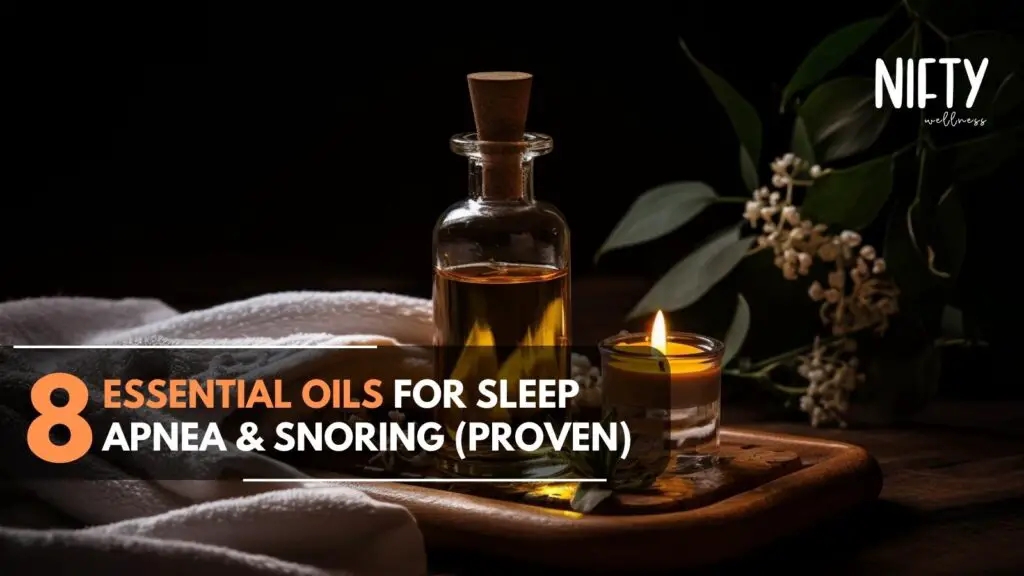In the quest for a restful night’s sleep, exploring natural remedies becomes essential, and the use of essential oils for snoring and essential oils for sleep apnea has emerged as a promising solution. These aromatic wonders fill the air with delightful scents and harbour potential benefits in addressing common sleep disturbances like snoring and sleep apnea. Delve into the world of holistic well-being as we unveil eight proven essential oils that may hold the key to alleviating snoring and sleep apnea, offering you the tranquil nights you deserve.
What Is Sleep Apnea?
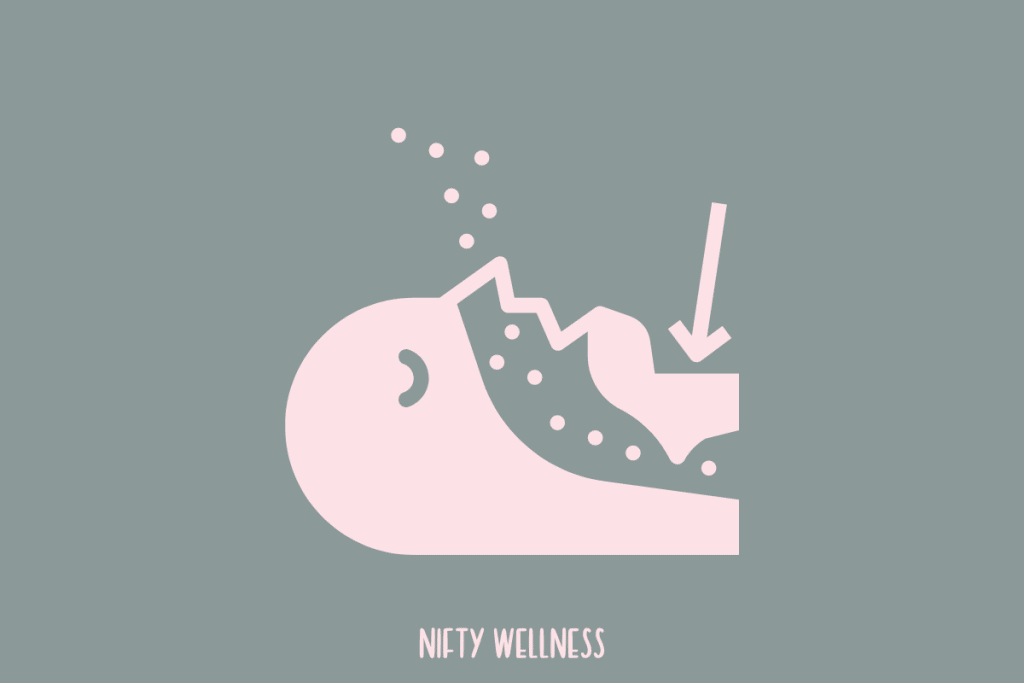
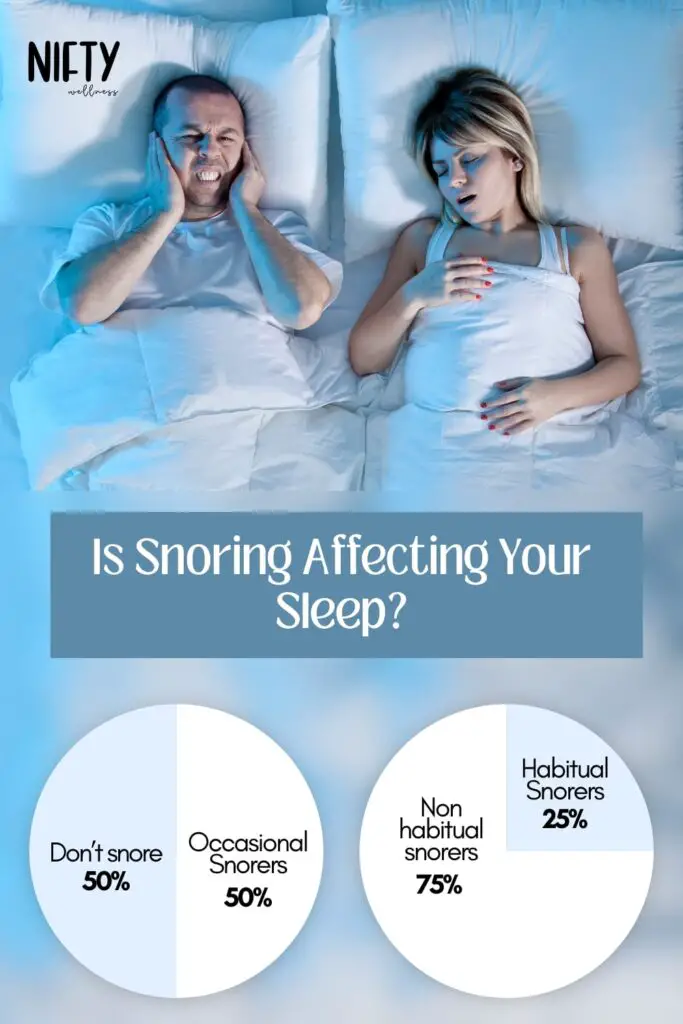
According to the National Sleep Foundation, sleep apnea is a condition that causes abnormal breathing during sleep. Sleep apnea is one of the most common sleeping disorders in the United States, affecting both children and adults.
During sleep, people with sleep apnea often have multiple extended pauses between each breath.
This makes sleep apnea a potentially severe condition as these temporary breathing lapses cause lower-quality sleep and negatively affect the body’s oxygen supply.
The 3 Types Of Sleep Apnea
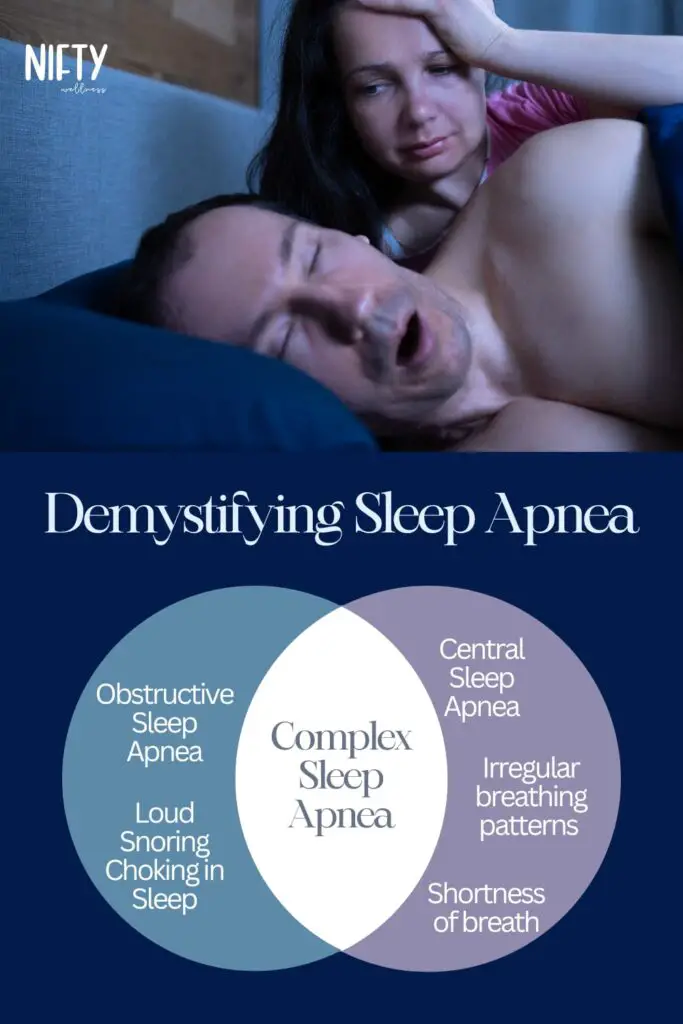
Obstructive Sleep Apnea (OSA): OSA occurs when the airway located at the back of the throat is physically blocked, causing temporary lapses in the breath that last for ten seconds or longer.
This condition is estimated to affect between two to nine percent of adults, but the real numbers could be considerably higher because many cases are undiagnosed.
Research has found obstructive sleep apnea to affect more men than women, occurring most often in older adults.
Central Sleep Apnea (CSA): CSA occurs where there is a problem with the brain’s system for controlling the muscles involved in respiration.
This leads to slower, shallower breathing. This condition affects men more than women and is believed to affect .9% of adults. Thus, OSA is much more common than CSA is often the one referred to when discussing sleep apnea.
Complex Sleep Apnea: Complex sleep apnea or mixed sleep apnea is when a person has both OSA and CSA at the same time.
Essentials Oils For Sleep Apnea (And Snoring)
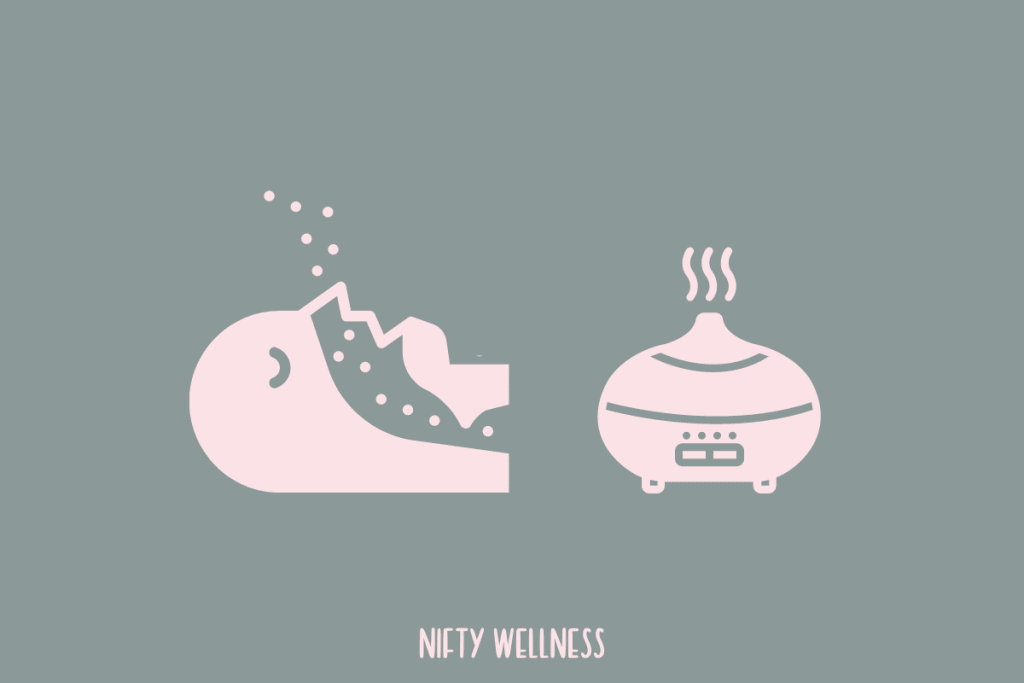
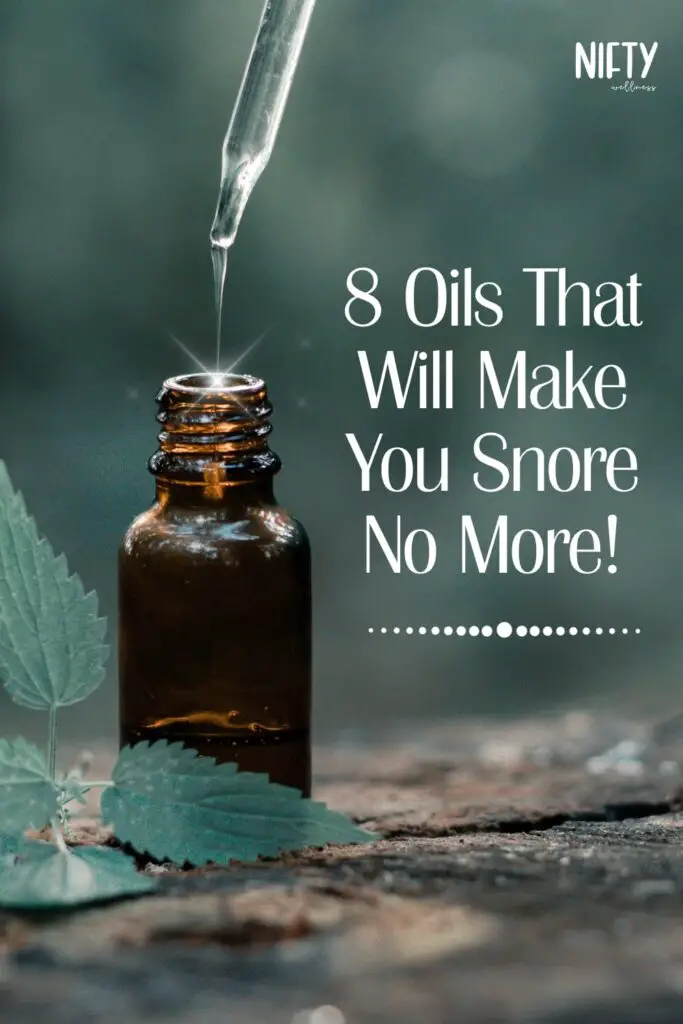
Embarking on a journey to address sleep apnea and snoring naturally, essential oils emerge as silent yet potent allies in the pursuit of restful nights. These aromatic wonders infuse the air with delightful scents and harbour potential benefits for common sleep disturbances. Unlock the therapeutic potential of these essential oils for sleep apnea and snoring, discovering a holistic path to peaceful and rejuvenating sleep. Explore nature’s soothing essence on the path to a quieter and more serene night’s rest.
Thyme Essential Oil
Thyme is a potent essential oil to use when snoring has become a problem. It can encourage a deeper, uninterrupted sleep by soothing the nervous system and any respiratory issues.
This oil can also benefit those with sleep apnea as it will help to clear blocked airways. To use thyme essential for snoring and sleep apnea, you can diffuse five to ten drops near your bed while you sleep.
It can also be mixed with a carrier oil for your choice and applied to the chest or bottoms of the feet as a salve to reduce snoring.
Eucalyptus Essential Oil
Eucalyptus is an essential oil commonly used for clearing blocked or troubled airways and can thus be used to discourage snoring.
If your snoring results from respiratory problems or nasal congestion, use eucalyptus oil to break up the mucus in your respiratory system.
Eucalyptus can be diffused into the air while you sleep or mixed with carrier oil and dabbed onto the side of your nose.
Your skin deserves the best, especially after shaving. Read our latest blog “The Ultimate Guide To Oils For After Shaving: Achieve a Smooth and Nourished Skin” and explore the post shave care.
Lemon Essential Oil
Lemon essential oil can naturally stop snoring by supporting the respiratory system and promoting relaxation and better sleep quality.
It is also known to have antispasmodic properties, which could benefit those dealing with sleep apnea.
Lavender Essential Oil
Lavender essential oil is a popular night-time remedy for promoting deep, uninterrupted sleep as it helps trigger the production of the sleep hormone melatonin.
(Check out more essential oils for sleep.)
It could thus benefit those who snore or have sleep apnea and have trouble sleeping through the night. This oil works amazingly for promoting sleep when it is diffused by your bedside.
Marjoram Essential Oil
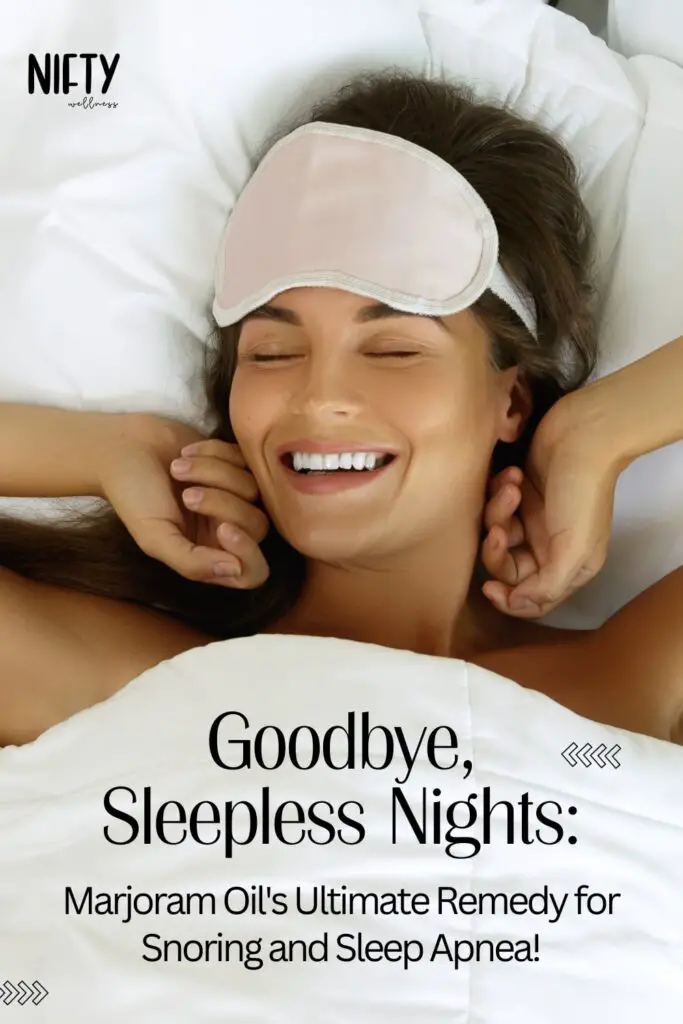
Marjoram essential oil is believed to have sedative properties that help induce sleep and treat sleep conditions like sleep apnea. It also helps to break up mucus obstructions and sinus congestion that influence snoring.
This oil can be diluted with a carrier oil and rubbed onto the chest or bottoms of the feet. Alternatively, it can be diffused at night before and during sleep.
Pine Essential Oil
Pine essential oil may benefit those who snore or struggle with sleep apnea as it is anti-inflammatory, promotes clear, open airways, and reduces muscle spasms.
It be diffused by itself or alongside other essential oils, such as lavender, to promote restful sleep and discourage snoring.
Peppermint Essential Oil
Peppermint essential oil is an excellent oil for promoting clearer, better breathing.
If your snoring or sleep apnea results from nasal congestion, peppermint oil can be used to unblock sinuses and relieve inflammation and irritation in the nasal passages.
This essential oil can be diffused near the bed or mixed with a carrier oil and massaged onto the body.
Valerian Root Essential Oil
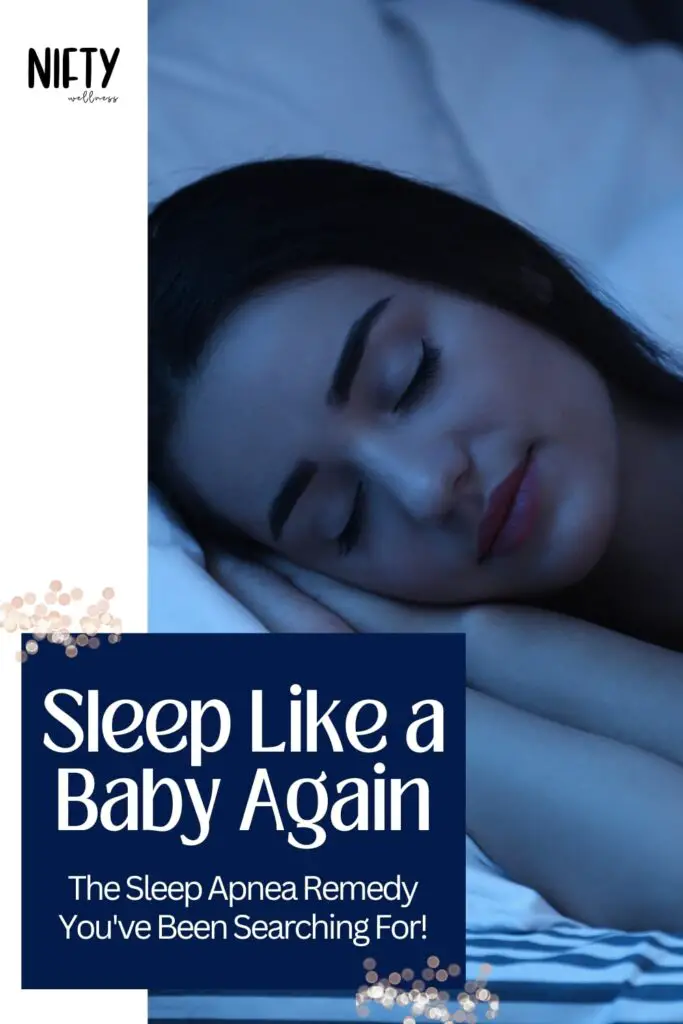
Valerian root has long been known for its powerful sedative effects that have been used for centuries to calm the nerves and promote restfulness.
It is a calming, soothing compound those who snore or have sleep apnea can use to ease them into a deep, rejuvenating state of sleep.
How Are Essential Oils Good for Snoring?
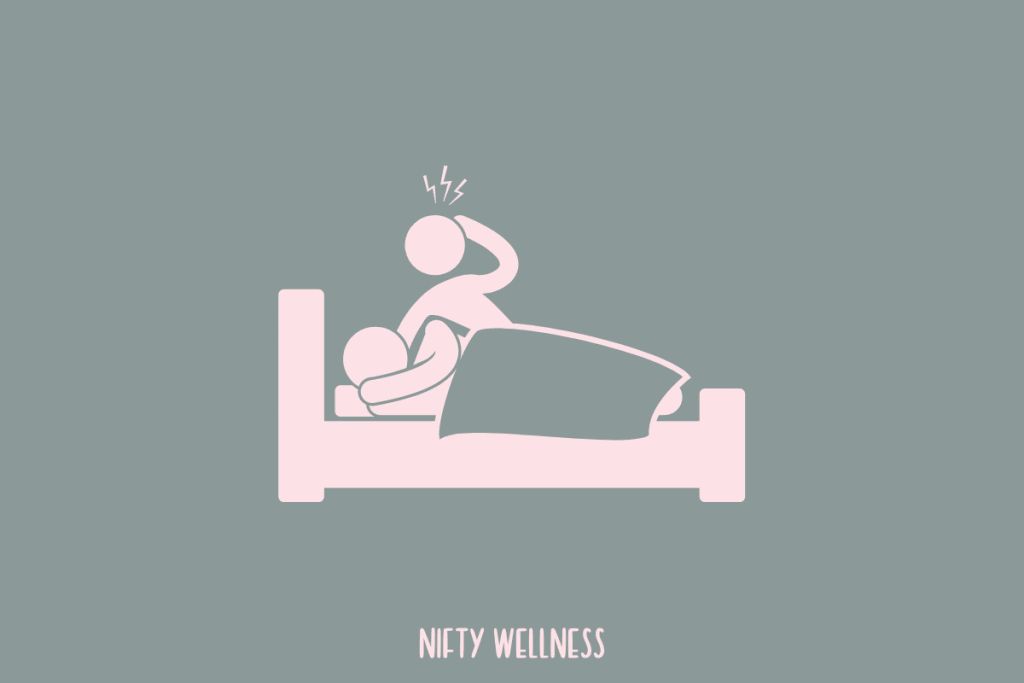
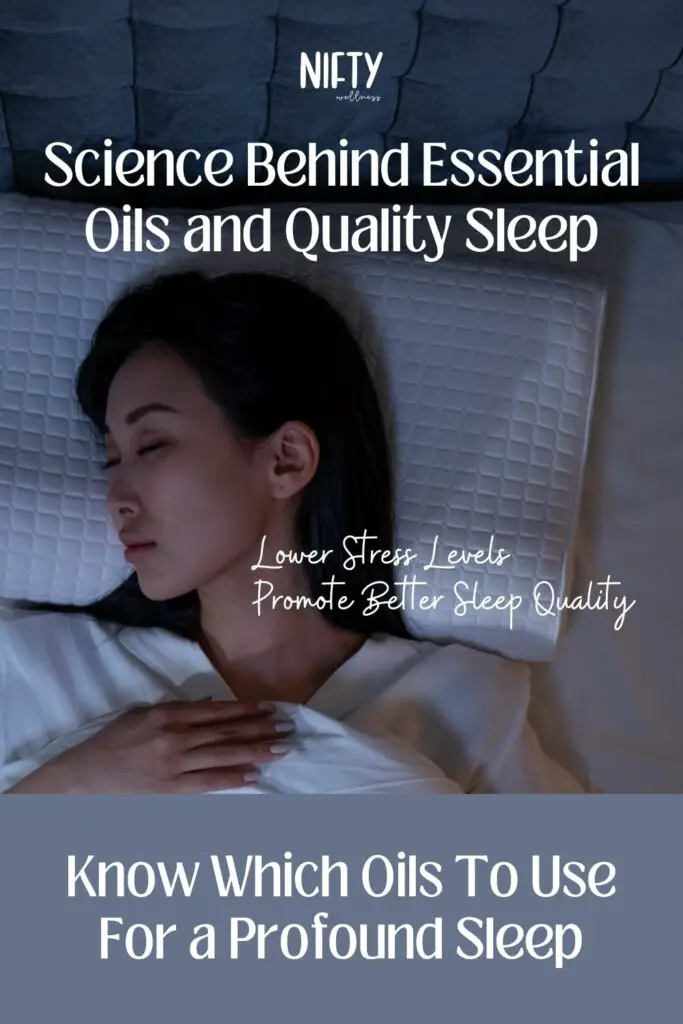
Chronic snoring is the most symptom of obstructive sleep apnea, but not all who snore have sleep apnea.
According to the American Academy of Otolaryngology–Head and Neck Surgery Foundation, nearly half of adults snore, with over twenty-five percent being habitual snorers.
In addition to being caused by OSA, snoring can result from alcohol consumption, nasal issues, sleep deprivation, sleep position, and blockages that narrow airways.
But if you or someone you know is snoring, essential oils can be an easy and safe way to promote healthy change.
Essential oils have long been sworn to promote restful sleep and prevent snoring. Certain essential oils have also been known to relieve obstructive sleep apnea.
One 2017 study examining the aromatherapy effects of lemon, eucalyptus tea tree, and peppermint found these essential oils lowered symptoms of stress and depression and promoted better sleep quality.
Check out our latest blog Fragrance Oils vs Essential Oils: Which One is Right for You? Explore the world of aromatics today!
Conclusion
In conclusion, exploring the realm of essential oils for sleep apnea and snoring opens up a fragrant avenue toward better sleep quality and respiratory well-being. From the soothing embrace of thyme to the refreshing notes of eucalyptus and the calming effects of valerian root, these oils offer a natural and accessible way to address common sleep disturbances. By incorporating these aromatic allies into your bedtime routine, you embark on a journey towards restful nights and peaceful sleep, embracing the therapeutic power of nature’s essences. Say goodbye to disruptive snores and welcome the tranquility that essential oils bring to your nightly repose.
Frequently Asked Questions

What Are the Symptoms of Sleep Apnea?
All three types of sleep apnea are linked to symptoms such as:
- Excessive daytime sleepiness.
- Morning headaches.
- Irritability, depression, mood changes.
- Lack of attention span and clear-mindedness.
- Disrupted breathing, defined by when a person’s breathing is labored or stops for up to a minute at a time.
Those with OSA may also experience dry mouth, sore throat, nocturia (or the frequent need to wake up to urinate), and snoring that is especially loud and involves gasping, choking, or snorting.
What Are the Health Risks of Sleep Apnea?
Sleep apnea can lead to sleep deprivation. This lack of sleep can affect a person mentally, physically, and emotionally and, thus, is linked to multiple health risks.
Some of the significant health risks associated with sleep apnea’s effect on oxygen balance in the body can increase a person’s likelihood of developing cardiovascular issues such as heart attack, stroke, high pressure, and heart disease.
What Causes Sleep Apnea?
Multiple factors can contribute to or cause sleep apnea, such as:
- Sleeping on your back, which makes it easier for airways to become blocked.
- Nasal congestion.
- Obesity, which may be an underlying risk factor in over sixty-percent of cases.
- The size and positioning of a person’s neck, tongue, jaw, tonsils, etc. that affect airflow.
- Alcohol and other sedatives which cause the throat to relax.
- Hormone conditions like hypothyroidism that may cause swelling near the airways or contribute to obesity.
However, CSA typically suggests an underlying medical condition in conjunction with the brain, such as a stroke, infection, or brain tumor.
What Stops Snoring Naturally?
In addition to using essential oils, you can naturally stop snoring by exercising, eating whole foods low in fat and sugar, and staying well hydrated.
You can also stop snoring by sleeping on your side and, if you can, by slightly elevating your head and neck to allow for better airflow.
Losing weight, stopping smoking, and not using drugs or alcohol before bed are also proven to alleviate snoring.
